Distant Dome is co-published by InDepthNH.org and Manchester Ink Link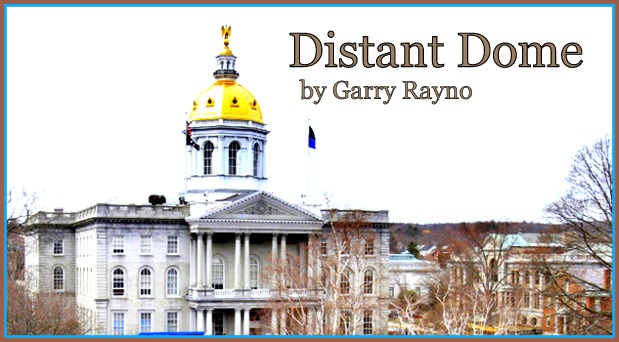
By GARRY RAYNO, Distant Dome
“The reports of my death are greatly exaggerated.” Mark Twain wrote from London to the press after his obituary had been mistakenly published in newspapers in the United States.
The same could be true about New Hampshire’s first-in-the-nation presidential primary.
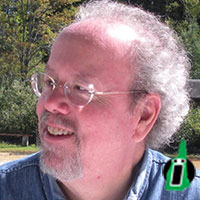
Garry Rayno
The next presidential primary in 2020 will mark perhaps its biggest challenge in some time.
Other states have long sought both to usurp the Granite State’s hallowed status and to diminish its influence to no avail with maybe one exception, 2008.
Lawmakers have responded — particularly former state Sen. and Rep. James Splaine, D-Portsmouth — creating a law requiring the New Hampshire primary to be at least seven days prior to any similar event.
The law gives the Secretary of State, who oversees New Hampshire elections, the power and flexibility to set the primary date to ensure the requirement is met.
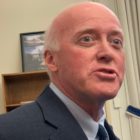
Secretary of State Bill Gardner
In the past, Secretary of State Bill Gardner has waited until fall to set the New Hampshire date, causing Iowa to change its caucus date several times.
Iowa, which holds the first presidential selection vote, has a law that its caucus must be the first in the country. But a caucus is not a direct voting primary like New Hampshire’s.
The Democratic and Republican national committees have in recent years agreed on a presidential selection calendar that carves out special exceptions for four states: Iowa, New Hampshire, South Carolina and Nevada, and then its a free-for-all for the other states.
It has not always been that easy in years past however. Gardner threatened to hold the New Hampshire primary in December after other states had scheduled a massive early February primary day that up-ended the early states’ status and timing.
In the end, the New Hampshire Primary was held Jan. 8 and the Iowa caucuses Jan. 3, leaving only five days between the two, which many agreed diminished the state’s standing that year, although both parties’ primaries were hotly contested with Hillary Clinton and John McCain winning after bruising battles.
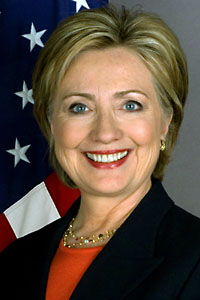
Former Secretary of State and Hillary Clinton
Recently, lawmakers in the largest state in the union — California — decided the state and its diverse population should play a much larger role in determining who the parties’ standard bearers should be.
Iowa and New Hampshire are small states and emphasize retail politics, holding town hall meetings, greeting workers in factories and office buildings, walking the streets of Manchester, Concord, Nashua, Portsmouth, etc. and shaking hands at the local dump or transfer station.
Lesser known and funded candidates have increased their profiles in the smaller states and a couple have won their party’s nomination like Georgia peanut farmer Jimmy Carter, although the better known and funded candidates win more often than not.
But with the new California law signed by Gov. and former Presidential candidate Jerry Brown, the California primary would be held at the earliest allowed date, which would be March 3. California also allows early voting 30 days prior to the date, so Californians would be voting before Iowa holds it caucuses or New Hampshire voters go to the polls.
And to make an impact in California, a candidate has to use paid advertising with estimates of a credible campaign at about $5 million, much more than the lesser known candidates could raise.

Steve Duprey
Over the years, there have been many people from both parties besides Gardner who have worked hard to maintain New Hampshire’s treasured status, including Steve Duprey, Kathy Sullivan, Tom Rath, Ray Buckley, Hugh Gregg and many others.
Despite a dour outlook, these folks have succeeded in securing New Hampshire’s first-in-the-nation presidential primary and candidates continue to trek to the state to meet political operatives and voters.
Commission Needed?
With the current California challenge and more to come in the future, Rep. Renny Cushing, D-Hampton, believes it is time to establish a first-in-the-nation presidential primary commission.
The commission would suggest ways to maintain its status through policies and legislation, would organize events to help promote the primary and develop education programs promoting the primary’s history and importance.
The commission would include the governor, senate president, house speaker, secretary of state, five other legislators, an executive councilor, the two party chairs, the chairman of the ballot law commission and five public members.
The group would produce an annual report for the governor, senate president and house speaker.
“A permanent commission would serve as the force within the state to advance the cause of our first-in-the-nation primary,” Cushing said.
Many people believe New Hampshire and Iowa are not diverse enough, but that has little to do with the primary’s value.
Both events weed out the fields so the stronger candidates go forward for both parties, often sending the eventual winner on his or her path to the nation’s highest office.
Many critics of the primary say it provides New Hampshire with millions if not billions of dollars from the candidates’ campaigns and that is why the state wants to retain its status.
The state does benefit financially, but not as much as it benefits candidate supporters politically. Look at the people who have worked on presidential campaigns who go on to

Terry Shumaker
high-profile positions in the new administration like Republicans John H. Sununu and Sherm Adams and Democrats like Terry Shumaker and Ricia McMahon.
And as someone said long ago, as long as the candidates believe they have to go to Iowa and New Hampshire if they want to be president, then the two historic political events will survive.
Yes, the primary has changed. It is now more event- and advertising-based with less retail politics, but New Hampshire voters continue to meet candidates who want to lead the free world and decide if they are presidential material.
And that can’t be bad.
A Great Lady
Being a journalist, you meet many of the people who inhabit New Hampshire’s political world: most are nice, few are not and almost all are at least respectful.
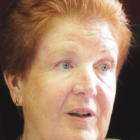
Maureen Barrows
One of the nicest I ever met through journalism or real life died last week: Maureen Barrows of Exeter.
A long-time Rockingham County Commissioner, Barrows ran for numerous offices over the years, but her more moderate views often failed to win over the more conservative GOP voters in primaries.
She was a remarkable woman who grew up on Winter Hill in Somerville, Mass. and always helped those in need in any way she could.
Barrows transformed her son’s tragic death from an automobile accident into the David Barrows Adventure Fund to help at-risk youngsters by raising the seed money through the Mud in Your Eye bicycle race for 10 years. Her son was an avid bicyclist.
Barrows also founded the Richie McFarland Children’s Center in Stratham and occasionally crossed party lines to endorse candidates who shared her views like Jeanne Shaheen.
She was also the first recipient of the Arthur F. Brady, Jr. Humanitarian Award.
Barrows liked to chat whether in person or over the phone. She was always upbeat and positive even in the face of cancer, which eventually took her life after two earlier bouts could not slow her down.
Maureen was a great, kind lady and people like her are extremely difficult to find these days.
Garry Rayno may be reached at garry.rayno@yahoo.com.
Distant Dome by veteran journalist Garry Rayno explores a broader perspective on the State House and state happenings. Over his three-decade career, Rayno covered the NH State House for the New Hampshire Union Leader and Foster’s Daily Democrat. During his career, his coverage spanned the news spectrum, from local planning, school and select boards, to national issues such as electric industry deregulation and Presidential primaries. Rayno lives with his wife Carolyn in New London.





